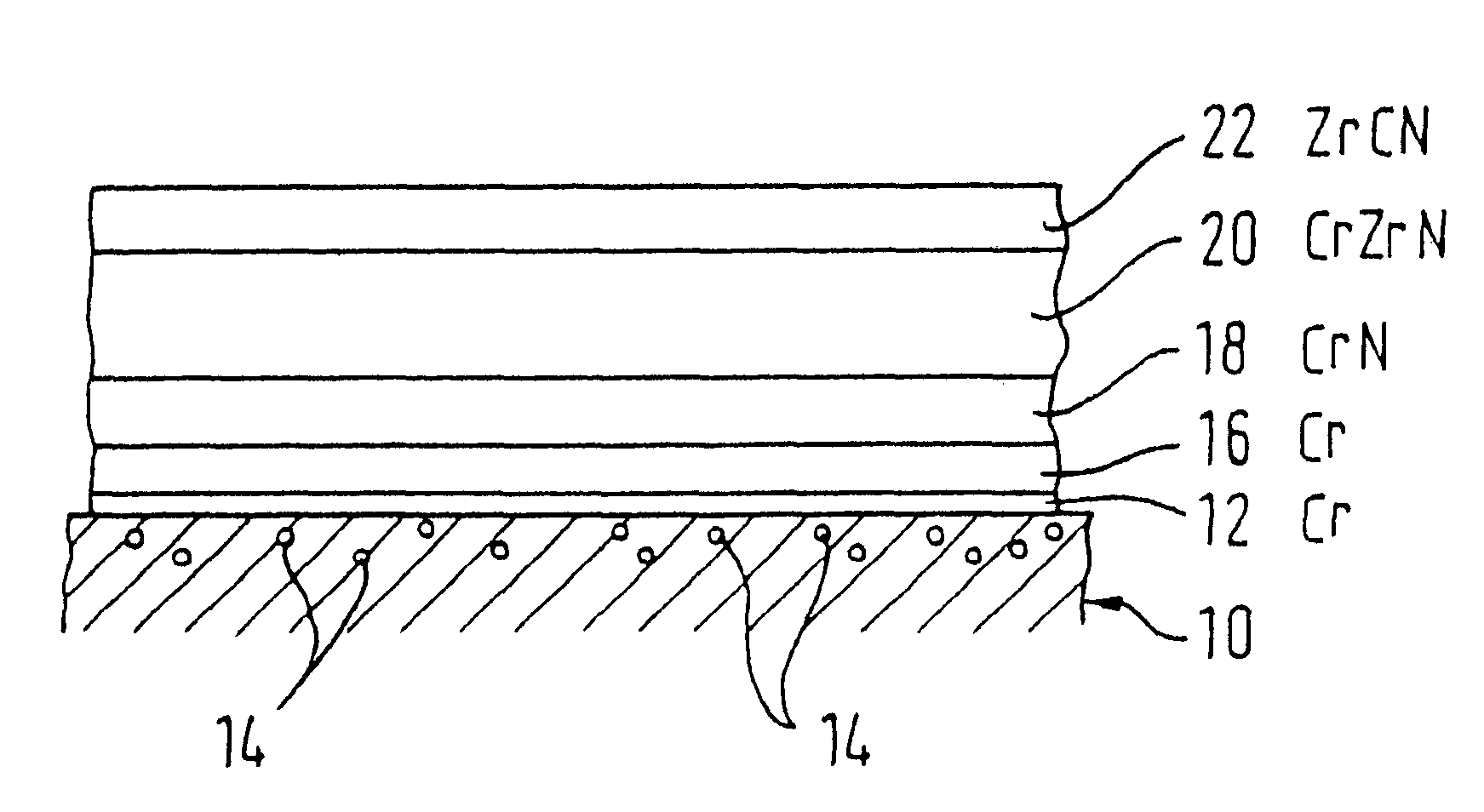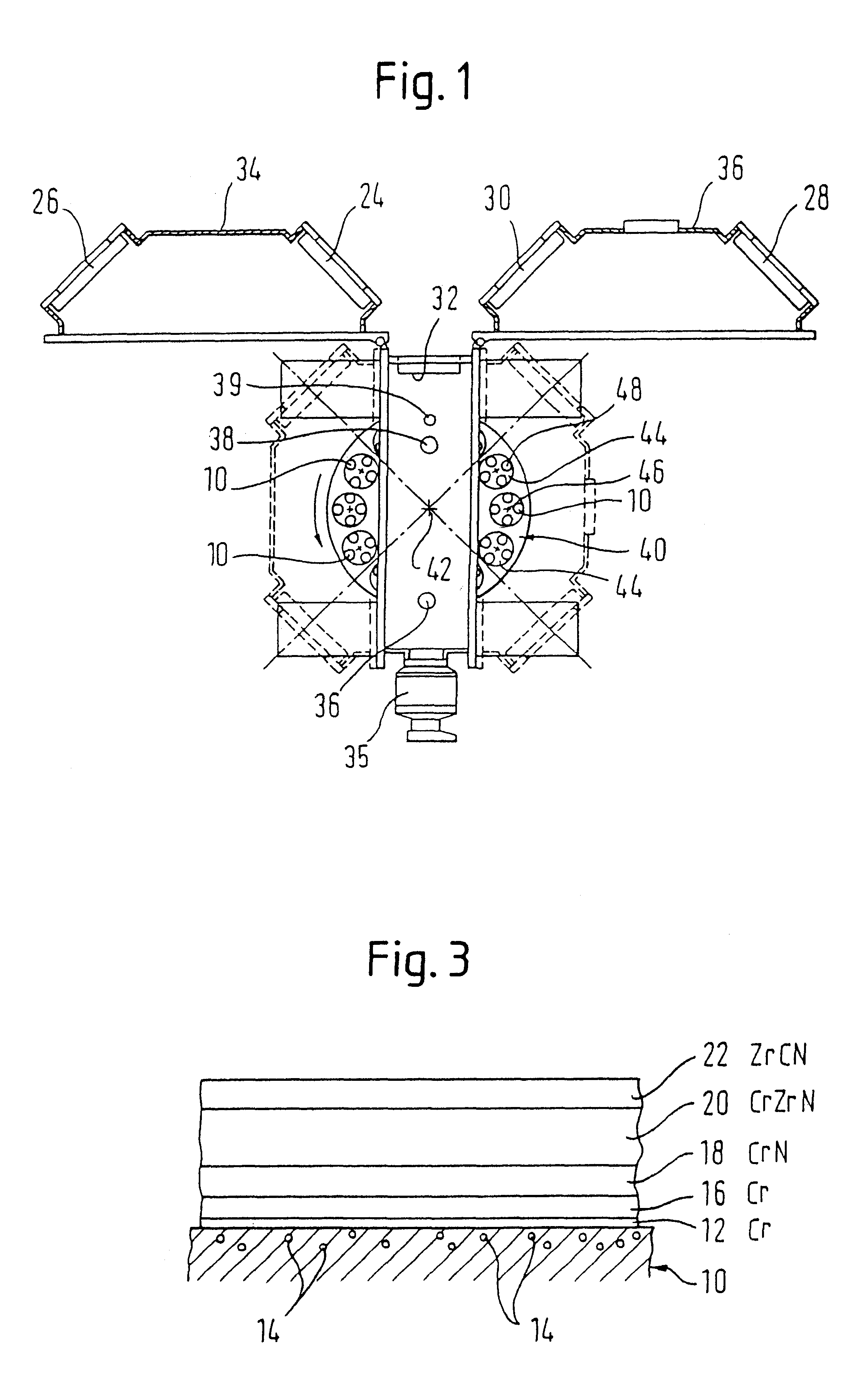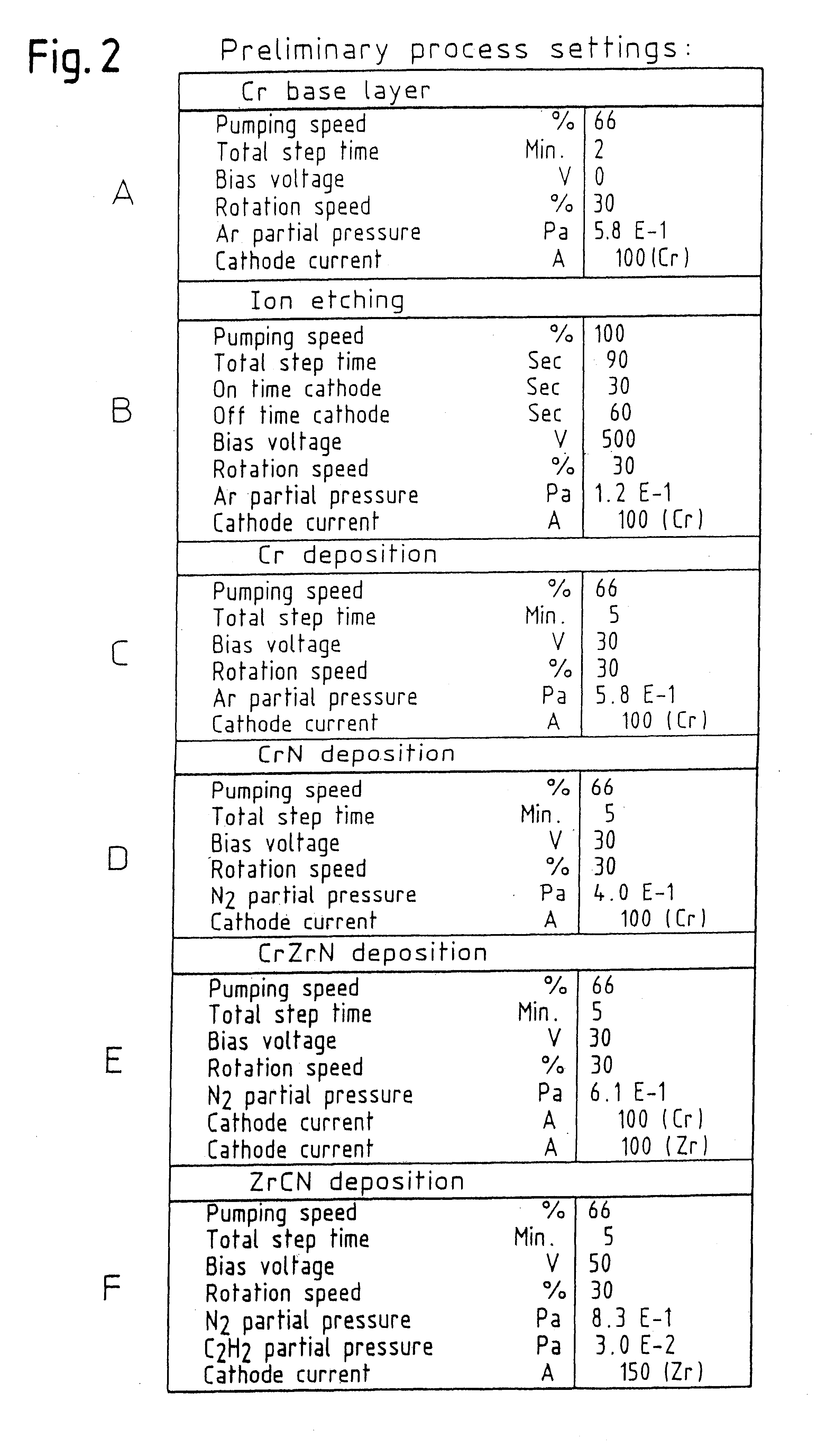Method of applying a coating by physical vapour deposition
a technology of physical vapour and coating, applied in the field of applying a coating by physical vapour deposition, can solve the problems of completely degassed, substantially increasing the cost of the process, and the productivity of the pvd apparatus
- Summary
- Abstract
- Description
- Claims
- Application Information
AI Technical Summary
Benefits of technology
Problems solved by technology
Method used
Image
Examples
Embodiment Construction
Turning first to FIG. 1, there can be seen a preferred coating apparatus used for carrying out the method of the invention to produce articles in accordance with the invention. This apparatus is shown in the closed state in broken lines and with the chamber walls or doors open, i.e. unlocked, in solid lines. The apparatus shown here, which is in principle constructed and operated in accordance with the European patent 0 439 561, is particularly described, albeit for another purpose, in "Surface and Coating Technology", Vol. 50 (1992), pages 169 to 178, in an article entitled "A new method for hard coatings" by W. Munz, D. Schultze and F. G. M. Hauzer.
The apparatus shown here employs four targets 24, 26, 28, 30, with the targets 24 and 26 being located in one pivoted chamber wall 34, and the targets 28 and 30 being held in the other pivotable chamber wall 36. The targets 24 and 26 consist of chromium and the targets 28 and 30 consist of zirconium. Each cathode takes the form of a rec...
PUM
| Property | Measurement | Unit |
|---|---|---|
| Electric potential / voltage | aaaaa | aaaaa |
| Electric potential / voltage | aaaaa | aaaaa |
| Electric potential / voltage | aaaaa | aaaaa |
Abstract
Description
Claims
Application Information
 Login to View More
Login to View More - R&D
- Intellectual Property
- Life Sciences
- Materials
- Tech Scout
- Unparalleled Data Quality
- Higher Quality Content
- 60% Fewer Hallucinations
Browse by: Latest US Patents, China's latest patents, Technical Efficacy Thesaurus, Application Domain, Technology Topic, Popular Technical Reports.
© 2025 PatSnap. All rights reserved.Legal|Privacy policy|Modern Slavery Act Transparency Statement|Sitemap|About US| Contact US: help@patsnap.com



